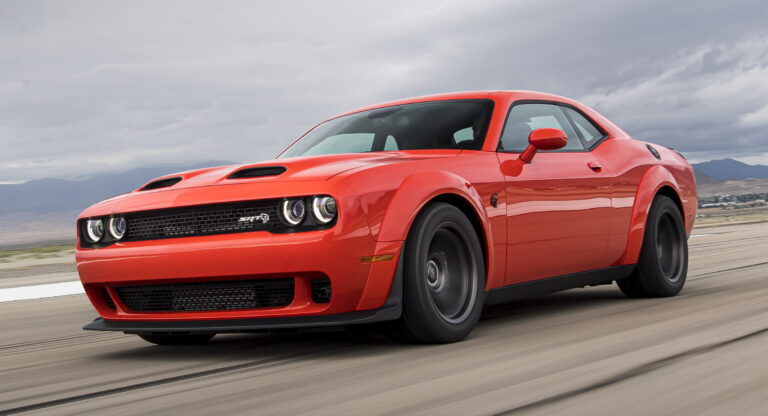2021 Diesel Trucks For Sale: A Comprehensive Buyer’s Guide
2021 Diesel Trucks For Sale: A Comprehensive Buyer’s Guide cars.truckstrend.com
In the ever-evolving landscape of automotive technology, certain model years stand out for their blend of refinement, capability, and value in the pre-owned market. The 2021 diesel trucks are a prime example. Representing a sweet spot for many buyers, these heavy-duty workhorses offer robust performance, impressive towing capacities, and the legendary durability that diesel engines are known for, often at a more accessible price point than their brand-new counterparts.
This comprehensive guide will delve into why 2021 diesel trucks remain highly sought after, what to look for when considering a purchase, and how to ensure you make an informed decision that meets your needs for power, reliability, and long-term value. Whether you’re a seasoned truck owner or new to the world of heavy-duty diesels, understanding the nuances of the 2021 models is key to finding your perfect rig.
2021 Diesel Trucks For Sale: A Comprehensive Buyer’s Guide
Why Choose a 2021 Diesel Truck?
Opting for a 2021 diesel truck in today’s market offers a compelling array of advantages, making them an excellent choice for a wide range of applications, from serious towing and hauling to everyday utility.
- Proven Reliability and Durability: By 2021, the major manufacturers had spent years refining their diesel powertrains. The 6.7L Power Stroke (Ford), 6.7L Cummins (Ram), and 6.6L Duramax (GM) engines were well-established, with known strengths and robust designs. This maturity often translates to fewer unexpected issues compared to newer, unproven designs, and a longer overall lifespan when properly maintained.
- Exceptional Towing and Hauling Capabilities: This is arguably the primary reason most people buy a diesel truck. 2021 models boast incredible torque figures, allowing them to effortlessly pull large fifth-wheel campers, gooseneck trailers, and heavy equipment. Their high Gross Combined Vehicle Weight Rating (GCWR) and Gross Vehicle Weight Rating (GVWR) make them ideal for commercial and serious recreational use.
- Superior Fuel Efficiency (for their class): While heavy-duty trucks aren’t known for economy car MPG, diesel engines generally offer better fuel efficiency than comparable gasoline engines in heavy-duty applications, especially when under load. Their ability to deliver more work per gallon makes them a cost-effective choice for those who frequently tow or haul.
- Strong Resale Value: Diesel trucks, especially those from reputable model years, tend to hold their value exceptionally well. Their longevity and specialized capabilities ensure a consistent demand, providing buyers with confidence in their investment.
- Cost-Effectiveness in the Used Market: Purchasing a 2021 model allows you to avoid the significant depreciation hit of a brand-new vehicle while still getting a relatively modern truck with many contemporary features. You benefit from the initial owner absorbing the steepest part of the depreciation curve.
- Refined Platforms: For many manufacturers, 2021 represented a refined version of their existing heavy-duty platforms, often before major redesigns. This means you get a well-sorted truck with years of incremental improvements in ride quality, interior comfort, and technology integration.

Key Players: Top 2021 Diesel Truck Models
The 2021 model year saw three dominant players in the heavy-duty diesel truck segment, each offering unique characteristics and catering to different preferences.
- Ford F-Series Super Duty (F-250, F-350, F-450) with 6.7L Power Stroke: Ford’s Super Duty trucks are synonymous with capability. The 2021 models featured the powerful 6.7L Power Stroke V8 turbo-diesel engine, paired with a 10-speed automatic transmission. Known for its strong acceleration and impressive towing figures (especially the F-350 and F-450 dually configurations), the Super Duty also offered a wide range of trims, from work-ready XL to luxurious Platinum, providing advanced towing technologies and a comfortable, spacious cabin.
- Ram Heavy Duty (2500, 3500) with 6.7L Cummins: Ram’s Heavy Duty trucks, powered by the legendary 6.7L Cummins inline-six turbo-diesel, were celebrated for their immense torque and robust reliability. The High-Output Cummins variant, in particular, boasted class-leading torque for staggering towing capacities. Beyond brute strength, Ram trucks were praised for their coil-spring rear suspension (on 2500 models, optional on 3500), which provided a remarkably smooth ride for a heavy-duty truck, coupled with a luxurious, technology-rich interior that often felt more like a premium SUV.
- Chevrolet Silverado HD/GMC Sierra HD (2500HD, 3500HD) with 6.6L Duramax: GM’s heavy-duty twins, the Silverado HD and Sierra HD, brought their own set of strengths to the table with the powerful 6.6L Duramax V8 turbo-diesel engine, paired with a 10-speed Allison automatic transmission. These trucks offered a compelling blend of power, refined driving dynamics, and innovative towing technologies like the "transparent trailer" camera system. GMC Sierra Denali and Chevrolet Silverado High Country trims provided upscale interiors and advanced features, making them comfortable daily drivers alongside their heavy-duty capabilities.

What to Look For When Buying a Used 2021 Diesel Truck

Purchasing a used diesel truck requires a more rigorous inspection process than a typical gasoline vehicle, given the specialized nature and higher potential repair costs of diesel components.
- Comprehensive Mechanical Inspection: This is non-negotiable. Have a trusted mechanic (preferably one specializing in diesel trucks) perform a pre-purchase inspection. They should check for:
- Engine Leaks: Look for oil, coolant, or fuel leaks around the engine, turbocharger, and fuel lines.
- Transmission Health: Check fluid levels and condition. Test drive to ensure smooth shifting without hesitation or hard shifts.
- Exhaust System: Inspect for leaks, especially around the Diesel Particulate Filter (DPF) and Selective Catalytic Reduction (SCR) components.
- Suspension and Brakes: Look for worn bushings, shocks, or uneven tire wear. Check brake pad thickness and rotor condition.
- Undercarriage: Inspect for rust, especially on the frame, brake lines, and fuel lines.
- Detailed Maintenance Records: Request full service history. Diesels require specific maintenance intervals for oil changes (using diesel-specific oil), fuel filter replacements, and Diesel Exhaust Fluid (DEF) system maintenance. Gaps or missed services can indicate neglect and potential future issues.
- Vehicle History Report (VIN Check): Obtain a CarFax or AutoCheck report. This will reveal accident history, flood damage, title issues (salvage, rebuilt), odometer discrepancies, and past ownership.
- Mileage and Usage: While diesels are built for longevity, higher mileage means more wear. Understand the truck’s previous life: was it a daily driver, a work truck, or a dedicated tow rig? A truck that regularly towed heavy loads will have more wear on components like the transmission and brakes.
- Aftermarket Modifications: Be cautious of trucks with significant aftermarket modifications, especially engine tunes ("delete kits"). These can void warranties, lead to premature component failure, and may not be emissions-compliant, potentially causing issues during state inspections.
- Fluid Checks: Beyond engine oil, check transmission fluid, differential fluid, and coolant for proper levels and condition.
- Test Drive: Pay attention to engine noises (excessive clatter, knocking), turbo whine, transmission behavior, steering feel, and brake performance. Test all electronic features.
Understanding Diesel Truck Trims and Features (2021 Models)
2021 diesel trucks were available in a vast array of trims, from basic work trucks to opulent luxury liners. Understanding these options is crucial for matching a truck to your needs and budget.
- Work/Base Trims (e.g., Ford XL, Ram Tradesman, Chevy WT): These are typically no-frills trucks designed for utility. Expect vinyl floors, basic infotainment, and minimal creature comforts. Ideal for pure work applications where durability and function trump luxury.
- Mid-Range Trims (e.g., Ford XLT/Lariat, Ram Big Horn/Lone Star, Chevy LT/LTZ, GMC SLE/SLT): These offer a good balance of features and value. They often include cloth or leatherette seats, larger touchscreens, power accessories, and popular convenience features like remote start and upgraded towing packages.
- Luxury Trims (e.g., Ford King Ranch/Platinum/Limited, Ram Laramie Longhorn/Limited, Chevy High Country, GMC Denali): These trims rival luxury SUVs in terms of comfort and technology. Expect premium leather interiors, advanced infotainment systems, heated/ventilated seats, panoramic sunroofs, advanced safety features, and sophisticated exterior styling.
- Cab Configurations:
- Regular Cab: Two doors, single row of seats. Best for maximum bed length relative to overall length.
- Extended/Quad Cab: Two full-size front doors, two smaller rear doors, and a small rear bench. Offers some rear seating or secure storage.
- Crew Cab: Four full-size doors and a spacious rear bench. Most popular for families or those needing to transport multiple passengers.
- Bed Lengths: Typically available in standard (around 6.5 ft) and long bed (around 8 ft) options. Your choice depends on what you plan to haul.
- Specialized Features: Look for integrated trailer brake controllers, exhaust brakes, auxiliary switches, power running boards, and advanced camera systems (like GM’s transparent trailer view).
Financing and Insuring Your 2021 Diesel Truck
Securing a 2021 diesel truck involves more than just the purchase price.
- Financing Options: Used vehicle loans are available from banks, credit unions, and dealerships. Interest rates will vary based on your credit score and the loan term. Given the higher price point of diesel trucks, a larger down payment can reduce your monthly payments and overall interest.
- Insurance Considerations: Diesel trucks typically have higher insurance premiums than comparable gasoline trucks due to their higher purchase price, specialized components that can be more expensive to repair, and higher towing capacities that might imply more commercial use. Obtain quotes from multiple insurance providers before committing to a purchase.
- Warranty Options:
- Remaining Factory Warranty: Some 2021 models might still have a portion of their original factory warranty (e.g., powertrain warranty) remaining, especially for lower-mileage examples. Check the in-service date.
- Certified Pre-Owned (CPO): Trucks purchased through a manufacturer’s CPO program often come with an extended warranty and have undergone a rigorous inspection. This offers peace of mind but typically comes at a higher price.
- Third-Party Extended Warranties: Various companies offer extended warranties for used vehicles. Research these carefully, understand the coverage, deductibles, and exclusions before purchasing.
Tips for Maintaining Your 2021 Diesel Truck
Proper maintenance is paramount for the longevity and reliability of a diesel truck. Neglecting it can lead to costly repairs.
- Adhere to Manufacturer’s Schedule: This is your bible. Follow the oil change intervals, fluid checks, and filter replacements precisely.
- Use the Right Fluids: Always use diesel-specific engine oil (CJ-4 or CK-4 rated), the correct transmission fluid, and high-quality Diesel Exhaust Fluid (DEF) from reputable sources.
- Fuel Filter Replacement: Diesel fuel filters need to be replaced more frequently than gas filters. This is critical for protecting the sophisticated high-pressure fuel injection system.
- DEF System Care: Keep the DEF tank filled with quality fluid. Do not ignore DEF system warnings, as they can lead to power derates or even prevent the truck from starting.
- Cooling System: Ensure the coolant is at the correct level and replaced as per schedule. Overheating can be catastrophic for a diesel engine.
- Air Filter: A clean air filter is essential for engine performance and longevity.
- Tire Maintenance: Given the heavy loads, proper tire pressure, rotation, and alignment are crucial for safety, fuel economy, and tire life.
Potential Challenges and Solutions
While 2021 diesel trucks offer tremendous value, there are a few considerations:
- Higher Upfront Cost: Diesel trucks are more expensive than comparable gasoline models, even used.
- Solution: Budget wisely, explore financing options, and remember the strong resale value often offsets this.
- Higher Maintenance Costs: Specialized parts and fluids can be more expensive.
- Solution: Factor maintenance into your budget. Proactive maintenance is cheaper than reactive repairs. Consider learning some basic DIY tasks.
- Emissions System Complexity: Components like the DPF and SCR can be prone to issues if not properly maintained or if the truck is used for short trips that don’t allow for regeneration cycles.
- Solution: Ensure regular highway driving (allowing for DPF regeneration), use quality DEF, and don’t ignore dashboard warnings.
- Fuel Availability/Price: Diesel fuel is not as widely available as gasoline and is often more expensive per gallon.
- Solution: Plan longer trips to include diesel-friendly fuel stops. The better fuel economy under load often offsets the higher per-gallon price.
Estimated Price Table for 2021 Diesel Trucks (Used – Q3 2024)
Please note: These prices are estimates and can vary significantly based on mileage, condition, trim level, optional features, region, and market demand. Always check multiple sources (KBB, Edmunds, local dealerships) for the most current pricing.
| Make/Model | Engine | Approx. HP/Torque | Original MSRP (New 2021 Base) | Estimated Used Price Range (2024) | Key Features (Brief) |
|---|---|---|---|---|---|
| Ford F-250/F-350 Super Duty | 6.7L Power Stroke V8 | 475 hp / 1,050 lb-ft | $40,000 – $55,000+ | $45,000 – $80,000+ | Strong towing, 10-speed auto, Pro Trailer Backup Assist |
| Ram 2500/3500 Heavy Duty | 6.7L Cummins I6 (Std) | 370 hp / 850 lb-ft | $40,000 – $55,000+ | $48,000 – $85,000+ | Class-leading interior, smooth ride (2500), massive torque |
| Ram 2500/3500 Heavy Duty | 6.7L Cummins I6 (HO) | 400 hp / 1,075 lb-ft | (Higher trims) | $55,000 – $90,000+ | Max torque, luxury options |
| Chevy Silverado 2500HD/3500HD | 6.6L Duramax V8 | 445 hp / 910 lb-ft | $40,000 – $55,000+ | $45,000 – $80,000+ | 10-speed Allison, integrated towing tech, refined cabin |
| GMC Sierra 2500HD/3500HD | 6.6L Duramax V8 | 445 hp / 910 lb-ft | $42,000 – $58,000+ | $48,000 – $85,000+ | Upscale styling, Denali luxury, ProGrade Trailering System |
Note: The "Estimated Used Price Range" accounts for various trims (from base WT/XL to top-tier Denali/Limited/Platinum) and mileage variations. Higher mileage, base models will be at the lower end; low mileage, fully loaded models will be at the higher end.
Frequently Asked Questions (FAQ) about 2021 Diesel Trucks
Q1: Are 2021 diesel trucks reliable?
A1: Generally, yes. By 2021, the diesel engines from Ford, Ram, and GM were well-established and highly reliable, provided they received proper maintenance. Issues are rare if the truck has been cared for.
Q2: What’s the typical fuel economy of a 2021 diesel truck?
A2: Fuel economy varies significantly based on driving conditions, load, and configuration. Expect anywhere from 13-16 MPG city and 16-20 MPG highway for an unloaded truck. When towing, these figures will drop, but diesel generally remains more efficient than gas in heavy-duty applications.
Q3: How much can a 2021 diesel truck tow?
A3: Towing capacities vary widely by model, engine, axle ratio, and configuration (2WD/4WD, single rear wheel/dually).
- F-250/350: Up to 37,000 lbs (F-450, conventional up to ~24,000 lbs).
- Ram 2500/3500: Up to 37,100 lbs (3500 HO, conventional up to ~23,000 lbs).
- Silverado/Sierra 2500HD/3500HD: Up to 36,000 lbs (3500HD, conventional up to ~20,000 lbs).
Always check the specific truck’s door jamb sticker and owner’s manual for its exact ratings.
Q4: Are diesel trucks more expensive to maintain than gasoline trucks?
A4: Yes, generally. Diesel engine oil, fuel filters, and DEF are often more expensive, and certain components (like the fuel injection system or turbocharger) can be costly to repair if they fail. However, their longer lifespan and better fuel economy under load can offset these costs over time.
Q5: What’s the main difference between the 6.7L Power Stroke, 6.7L Cummins, and 6.6L Duramax?
A5:
- Power Stroke (Ford): Known for its strong overall performance, quick throttle response, and robust construction. Often integrated with advanced Ford tech.
- Cummins (Ram): Celebrated for immense low-end torque, legendary durability, and simplicity (being an inline-six). Often favored by heavy towers.
- Duramax (GM): Praised for its smooth operation, strong power delivery across the RPM range, and excellent integration with the Allison transmission. Often found in trucks with more refined interiors and advanced trailering tech.
Q6: Do 2021 diesel trucks require Diesel Exhaust Fluid (DEF)?
A6: Yes, all 2021 heavy-duty diesel trucks sold in North America require DEF to meet emissions standards. DEF is injected into the exhaust stream to reduce nitrogen oxide (NOx) emissions.
Conclusion
The 2021 diesel truck market offers a compelling opportunity for buyers seeking a powerful, durable, and feature-rich vehicle without the new-car price tag. These trucks represent a sweet spot, offering modern capabilities and refinements built upon proven platforms. By understanding the specific strengths of each manufacturer, diligently inspecting any potential purchase, and committing to proper maintenance, you can acquire a heavy-duty diesel truck that will serve your towing, hauling, and utility needs reliably for years to come. Do your research, ask the right questions, and don’t hesitate to invest in a professional inspection – your ideal 2021 diesel truck is out there waiting.





